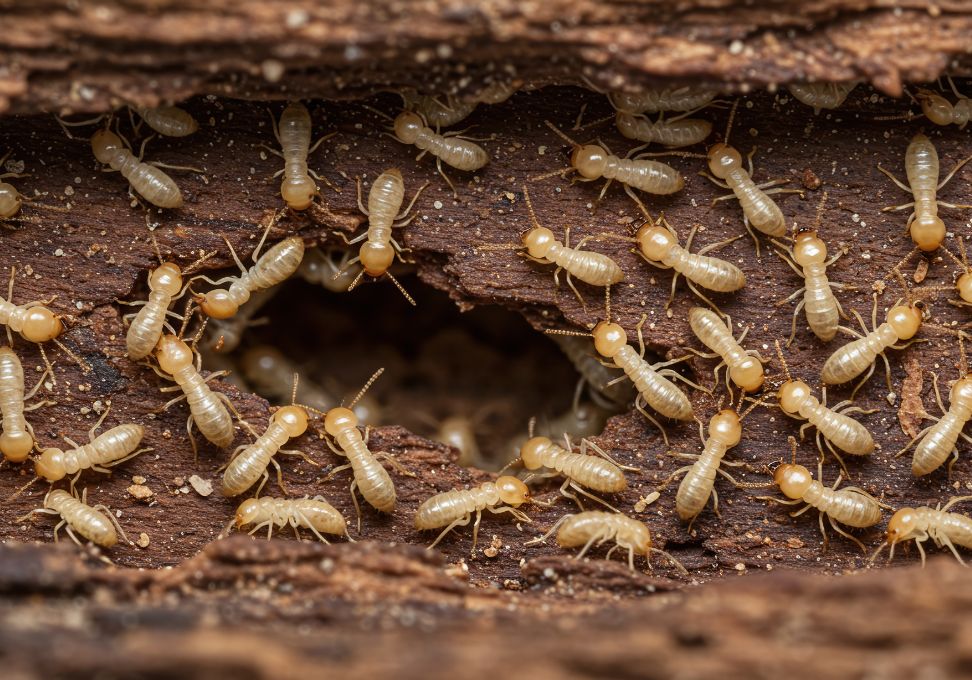Seasonal Pest Control Guide: Year-Round Protection for Homes and Businesses
Pests are not limited to one season. Different times of year bring unique challenges, from ants in spring to rodents in winter. Understanding seasonal pest activity allows homeowners and business owners to prepare for infestations before they grow. With expert pest control in Queen Creek, AZ, a structured seasonal pest management plan helps maintain safe, healthy, and pest-free spaces year-round.
This guide explains common seasonal pests, prevention strategies, and when to call for professional pest management.
Why Pest Control Varies by Season
Pests respond to changes in weather, food availability, and shelter opportunities. Warmer months increase insect activity, while colder months drive rodents indoors. By anticipating these cycles, property owners can prevent infestations instead of reacting after they start.
Spring Pest Control
Common Spring Pests
- Ants: Kitchens and pantries attract ants seeking food.
- Termites: Spring is swarming season, when termites establish new colonies.
- Flies: Warmer weather increases fly activity near doors, windows, and trash.
- Garden Pests: Aphids and beetles emerge to feed on plants.
Risks in Spring
- Food contamination from ants and flies.
- Structural damage from termites.
- Plant destruction in gardens and landscaping.
Spring Pest Prevention
- Seal cracks in foundations and around windows.
- Store food in airtight containers.
- Keep outdoor trash bins clean and covered.
- Schedule a professional termite inspection.
- Maintain gardens with natural pest deterrents.
Summer Pest Control
Common Summer Pests
- Mosquitoes: Standing water creates breeding grounds.
- Wasps and Hornets: Build nests in trees, eaves, or sheds.
- Cockroaches: Thrive in hot, humid environments.
- Fleas and Ticks: Peak season due to warm weather and pet activity.
- Flies: Increase in number near outdoor food and waste areas.
Risks in Summer
- Mosquitoes spread West Nile virus and other diseases.
- Wasps and hornets deliver painful and dangerous stings.
- Cockroaches spread bacteria and trigger asthma.
- Fleas and ticks affect both pets and humans.
Summer Pest Prevention
- Remove standing water from gutters, birdbaths, and planters.
- Trim grass and bushes to reduce tick habitats.
- Inspect pets regularly and use veterinarian-approved treatments.
- Clean outdoor eating areas and secure trash.
- Hire professionals for safe wasp or hornet nest removal.
Fall Pest Control
Common Fall Pests
- Rodents: Mice and rats move indoors seeking warmth and food.
- Spiders: Increase activity in basements, garages, and corners.
- Stink Bugs: Enter homes to overwinter in walls and attics.
- Cockroaches: Continue activity as they look for warm indoor spaces.
Risks in Fall
- Rodents contaminate food and chew wires, causing fire hazards.
- Stink bugs stain surfaces and emit strong odors.
- Cockroaches spread salmonella and other bacteria.
Fall Pest Prevention
- Seal entry points larger than ¼ inch for rodents.
- Install door sweeps and window screens.
- Store firewood away from homes.
- Deep clean kitchens and food storage areas.
- Schedule seasonal pest inspections to detect hidden infestations.
Winter Pest Control
Common Winter Pests
- Mice and Rats: The most common intruders in cold weather.
- Cockroaches: Move into heated indoor spaces.
- Bed Bugs: Spread in homes, hotels, and shared spaces.
- Spiders: Remain active indoors.
Risks in Winter
- Rodents spread hantavirus, leptospirosis, and salmonella.
- Cockroaches worsen asthma and allergies.
- Bed bugs cause discomfort, itching, and sleeplessness.
Winter Pest Prevention
- Inspect attics, basements, and crawl spaces for rodent activity.
- Keep food sealed and pantries organized.
- Wash and heat-dry bedding to reduce bed bugs.
- Repair cracks in walls and foundations.
- Work with professionals for rodent-proofing and exclusion services.
Year-Round Pest Control Practices
Regular Inspections
Schedule seasonal inspections to identify early signs of infestations.
Sanitation and Food Storage
Keep kitchens, pantries, and storage areas clean and organized. Food should be sealed to reduce attractants.
Moisture Control
Fix leaky pipes and reduce humidity in basements and bathrooms. Many pests thrive in damp environments.
Landscape Maintenance
Trim vegetation, remove yard debris, and maintain proper drainage.
Professional Pest Control Services
Working with licensed pest control professionals provides long-term prevention. Experts use Integrated Pest Management (IPM) strategies that combine inspection, exclusion, and targeted treatments.
When to Call a Professional
Call professional pest control services if:
- You hear scratching, gnawing, or movement in walls or ceilings.
- Droppings, nests, or gnaw marks are discovered.
- DIY prevention does not resolve recurring pest issues.
- Large infestations create health or safety risks.
Professionals provide expertise, safe treatment options, and long-term solutions tailored to seasonal pest activity.
Seasonal Pest Control Checklist
Spring
- Inspect for termites and ants.
- Store food in sealed containers.
- Clean outdoor trash bins.
Summer
- Remove standing water.
- Check pets for fleas and ticks.
- Inspect for wasp nests.
Fall
- Seal rodent entry points.
- Install door sweeps and screens.
- Store firewood away from home.
Winter
- Inspect attics and basements for rodents.
- Seal cracks in foundations.
- Wash bedding regularly for bed bugs.
Benefits of Seasonal Pest Control
Health Protection
Seasonal pest prevention reduces exposure to zoonotic diseases such as rabies, hantavirus, salmonella, and Lyme disease.
Property Preservation
Pest control prevents structural damage from termites, rodents, and nesting animals.
Cost Savings
Proactive seasonal inspections and treatments are more cost-effective than repairing extensive damage or treating large infestations.
Peace of Mind
Knowing your home or business is protected year-round creates a safer, healthier environment.
Conclusion
Pest activity changes with the seasons, but infestations are a year-round concern. Ants, termites, mosquitoes, rodents, and bed bugs each pose unique risks that require seasonal pest control strategies. At Critter Bros LLC – Queen Creek, we provide proactive solutions to keep your home or business protected in every season.
Homeowners and business owners can prevent infestations by sealing entry points, managing food and waste, maintaining clean properties, and scheduling professional inspections. A proactive seasonal pest control guide ensures consistent protection, healthier spaces, and peace of mind throughout the year.

